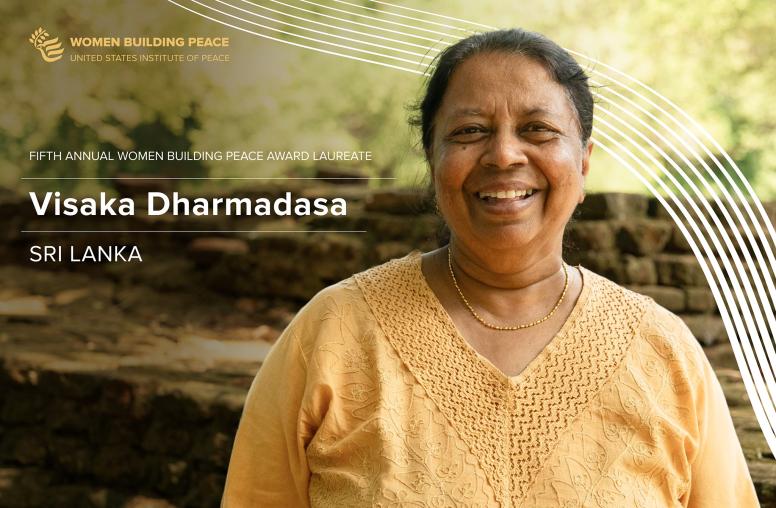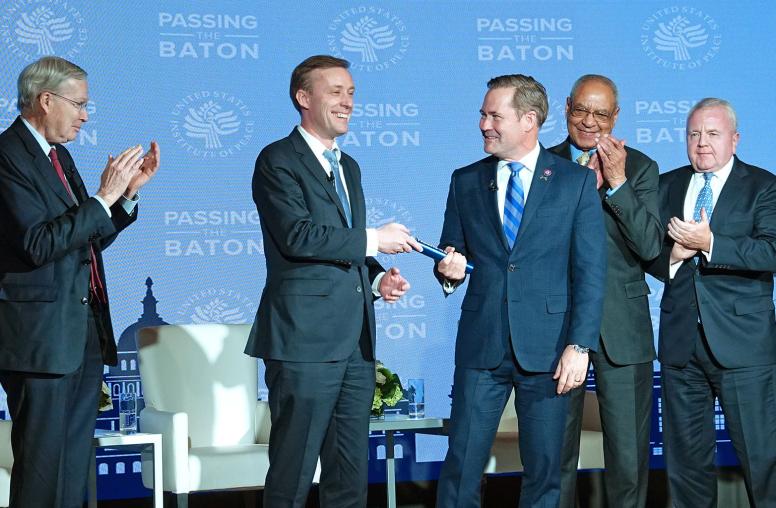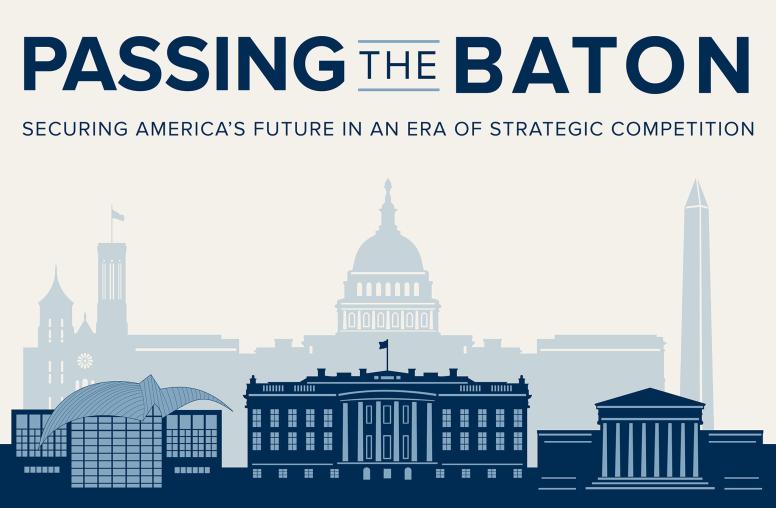Easing Tensions in South Asia
Experts consider the options at an Institute Current Issues Briefing.
According to a panel of experts at a recent Current Issues Briefing at the U.S. Institute of Peace, U.S. policymakers ignore growing tensions between India and Pakistan at their peril. Held in Washington at the Institute on March 9, 2000, the briefing convened a panel of leading experts to discuss and examine the prospects for regional peace and stability in light of President Clinton's scheduled upcoming trip to South Asia.
Simulcast live over the Internet by the Institute, the theme of the briefing was the challenges facing the United States and international community to actively engaging South Asia in the 21st Century. Presenters at the briefing included Sen. Sam Brownback, Assistant Secretary of State Karl Inderfurth, Dr. Shirin Tahir-Kheli, Amb. Robert Oakley, and Amb. Frank Wisner.
Renewing America's Commitment to South Asia
President Clinton's trip to South Asia is designed as the first step in enhancing U.S. engagement with the region. The trip, which will include visits to India, Bangladesh, and Pakistan will be the most extensive visit of any modern president to the region and the first trip to India in 22 years. During the briefing, Assistant Secretary of State for South Asian Affairs Karl Inderfurth outlined key components necessary for an effective U.S. policy towards South Asia and several objectives of the President's trip:
- Creating an environment for regional peace and security in South Asia.
- Countering the growth of terrorism.
- Preventing the proliferation of weapons of mass destruction.
- Promoting the return of democracy to Pakistan.
- Cooperating on global health matters.
Assessing Stability in South Asia
During the roundtable discussion, panelists outlined several challenges to the future of peace and stability in South Asia, including the threats of terrorism, nuclear weapons proliferation, and continued conflict in Kashmir.
TerrorismContinued growth in the activity of international terrorists who find a safe haven in Afghanistan and Pakistan is an increasing a threat to South Asian stability and U.S. national security. According to former U.S. Ambassador Pakistan Robert Oakley, like Lebanon in the mid 1980's, Afghanistan serves as a haven to many regional and international terrorist groups whose presence will continue to destabilize regional security in upcoming years.
Kashmir
Recent fighting in Kashmir and nuclear tests within India and Pakistan has predictably heightened regional tensions and caused concerns by the international community. During the briefing, panelists stressed that the U.S. should:
1. Continue to encourage India and Pakistan to establish a bilateral dialogue over Kashmir.2. Maintain open lines of communications with both nations in order to play an effective role in any future crises.
However, panelists also emphasized that the U.S. should not become a direct mediator on this issue.
Not a Zero Sum Game
Summarizing one of the day's key themes, Senator Brownback stressed that U.S. policymakers must avoid the trap of using a zero-sum political approach to American foreign policy toward South Asia:
"What is good for India is not bad for Pakistan…The United States should have a separate foreign policy towards each country… Tying one to the other perpetuates their zero-sum game policies and encourages the competition and animosity that is all too close too the surface in both countries."
Lessons Learned
During the briefing, Assistant Secretary Inderfurth, Senator Brownback, and the panel examined several steps that will help ensure stability in South Asia:
- US policymakers must sustain commitment to South Asian stability.
The United States has neither an attractive enough carrot nor hard enough stick to address Pakistan's concerns about proliferation and terrorism. U.S. influence in South Asia has waned since the end of the Cold War. Panelists agreed that new approaches to engage both India and Pakistan must be pursued by U.S. policymakers including Track II talks to find areas of common concern by leaders in both the U.S. and South Asia. Panelists pointed out that solutions will not be quick nor easy and that U.S. policymakers must not raise expectations about the ability of the U.S. to bring stability to the region in the immediate future.
- India and Pakistan must recognize that stable relations are in their mutual national interests.
Panelists agreed that although the United States can play a substantial role in facilitating a dialogue between India and Pakistan, the two nations must become directly involved in building a lasting foundation for peace. A peace dividend in South Asia would free up significant resources from defense spending for both governments to invest in domestic programs such as education.
- The international community must continue to pressure for restoration of democracy in Pakistan.
A democratic Pakistan is key to the stability of South Asia. The panelists urged U.S. policymakers to aggressively work with the international community and NGOs to strike at the root of South Asia's social problems and to encourage democratic and economic reform at the local level. Policymakers were cautioned to be patient and not to push Pakistan in implementing premature or short-sighted democratic reform programs. Building a solid base of support for political and economic liberalization in South Asia must be done gradually and with care.
AGENDA
9:00 - 9:30 am
The Honorable Karl F. Inderfurth, Asst. Secretary of State for South Asian Affairs
Remarks on "The President's Trip to South Asia: An Overview"
9:30 -11:00 am
The Honorable Frank Wisner, American International Group
Panel Discussion ChairMr. Marshall Bouton, The Asia Society
"U.S. Interests in Advancing Peace and Preventing War in South Asia"The Honorable Robert Oakley, National Defense University
"The Threats from Terrorism and Kashmir"The Honorable Shirin Tahir-Kheli, South Asia Program, SAIS
"Prospects for Indo-Pakistani Cooperation"Dr. Ashley Tellis, RAND
"The Balance of Terror: Nuclear and Missile Proliferation"
11:00 - 11:30 am
The Honorable Sam Brownback, U.S. Senator- Kansas
"U.S. Interests and Opportunities: A View from Congress"
For a copy of the remarks of Senator Brownback or Assistant Secretary Inderfurth please contact the Office of Communications at (202) 457-1700.
Looking for Expert Commentary on South Asia?
U.S. Institute of Peace South Asia specialists: Daniel Benjamin, John Crist, Patrick Cronin, Deepa Ollapally, and Arjuna Parkrama are available for questions, commentary, and analysis regarding President Clinton's upcoming trip to South Asia and other breaking peace and security issues throughout South Asia.
- Daniel Benjamin
- John T. Crist
- Patrick M. Cronin
- Deepa M. Ollapally
- Arjuna Parakrama
The United States Institute of Peace is an independent institution created and funded by Congress to promote research, education, and training on the peaceful resolution of international conflicts.



